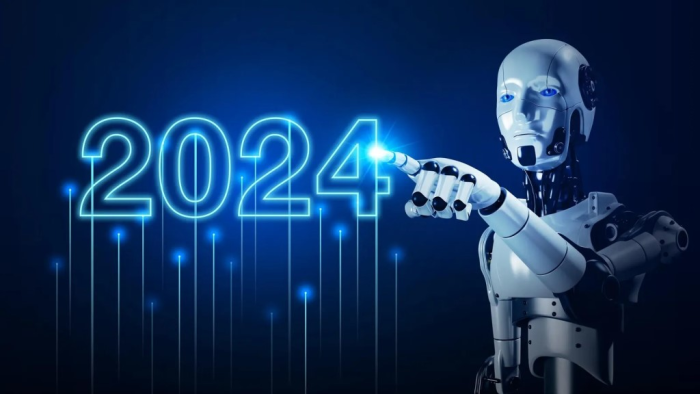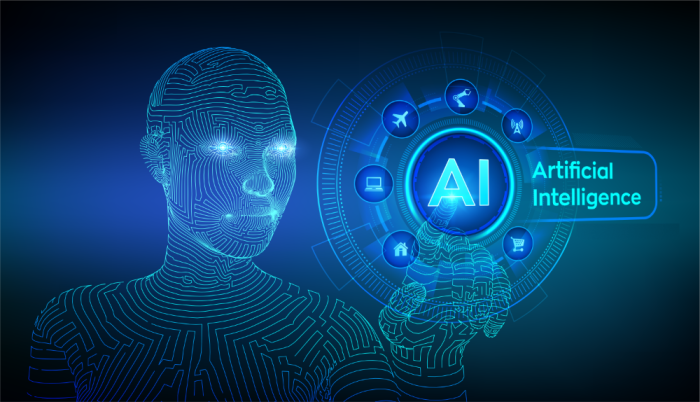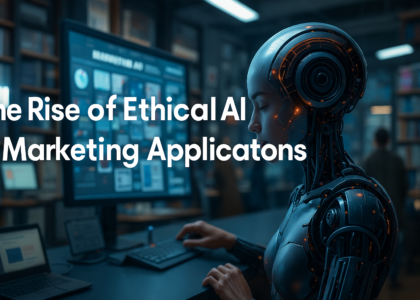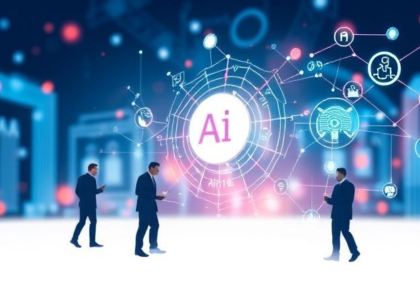
Artificial intelligence (AI) is reshaping marketing strategies across industries. The rapid advancements in AI technology are allowing marketers to better understand their audiences, automate time-consuming tasks, and deliver personalized experiences. In 2024, AI continues to be a powerful tool, offering new possibilities that are helping brands stay competitive. From AI-driven personalization to generative AI content creation, businesses are tapping into machine learning and predictive analytics to refine their marketing efforts.
Let’s explore some of the key trends in AI marketing for 2024 and how these innovations are impacting marketing teams globally.
AI-Driven Personalization and Customer Experiences
In today’s competitive market, personalization is a key differentiator. AI enables marketers to craft hyper-targeted campaigns based on detailed customer insights. Machine learning algorithms analyze vast amounts of data to understand consumer behavior, preferences, and patterns. This allows companies to offer more personalized experiences, whether it’s through tailored email campaigns, personalized product recommendations, or dynamic website content.
For example, AI-driven tools can predict what content or products a customer is most likely to engage with, leading to higher conversion rates. Chatbots and virtual assistants, powered by natural language processing, also provide customers with real-time support and personalized recommendations. This approach not only enhances customer satisfaction but also builds long-term loyalty. Automation of Marketing Campaigns with AI
AI is transforming the way marketers execute campaigns by automating repetitive tasks. This includes email marketing, social media management, and content scheduling. AI-powered platforms like HubSpot and Marketo are equipped with features that allow marketers to set up automated workflows, freeing up time for more strategic initiatives.
These AI tools can segment audiences, optimize content, and even predict the best time to send messages based on user activity. For instance, AI-driven email marketing platforms can automate A/B testing, ensuring that the best-performing version is delivered to users. This automation not only saves time but also improves the effectiveness of marketing campaigns.
Predictive Analytics and Data-Driven Decision Making
Predictive analytics is one of AI’s most powerful tools in marketing. By analyzing historical data, AI can predict future trends, customer behaviors, and potential sales outcomes. This helps marketers make data-driven decisions, improving campaign targeting and ROI.
AI-powered predictive models can forecast everything from customer lifetime value to the likelihood of a lead converting into a sale. This data allows marketers to adjust their strategies in real-time, optimizing ad spend and focusing efforts on high-performing channels. Companies that leverage AI for predictive analytics gain a competitive edge by staying ahead of market trends.
The Impact of Generative AI in Content Creation
Generative AI, such as OpenAI’s GPT-4, is revolutionizing content creation for marketers. These AI models can generate high-quality written content, from blog posts to social media captions, within minutes. The ability to produce content at scale has transformed how marketers approach content marketing.
However, while generative AI offers speed and efficiency, there are challenges. The content generated may require human editing to ensure brand voice consistency and accuracy. Despite these challenges, many businesses are successfully integrating AI into their content strategy, enabling them to keep up with growing content demands.
Ethical Considerations in AI Marketing
As AI becomes more integrated into marketing, ethical concerns arise. Issues like data privacy, transparency, and algorithmic bias are critical topics for marketers to consider. AI systems rely on vast amounts of data, and ensuring that this data is collected and used ethically is paramount.
Marketers must be aware of potential biases in AI algorithms that could lead to discriminatory practices. Additionally, being transparent with consumers about how AI is used in marketing processes can foster trust and improve brand reputation.
Future of AI Marketing: What’s Next?
Looking ahead, AI will continue to shape the future of marketing. Technologies like AI-powered video content creation, advanced voice search optimization, and even more sophisticated personalization tools are expected to emerge. Businesses that adapt to these advancements will be better positioned to capture market share.
Preparing for the future means investing in AI technology today. Companies that stay ahead of the curve will not only enhance their marketing efforts but also deliver exceptional customer experiences.
AI-Powered Customer Insights and Behavior Analysis
One of the most transformative aspects of AI in marketing is its ability to analyze customer data in real time. AI-powered analytics tools can process huge datasets, uncovering valuable insights about customer behavior and preferences that would take human analysts weeks to find. By using machine learning algorithms, marketers can identify patterns and trends that help them fine-tune their strategies and make more informed decisions.
AI tools such as sentiment analysis can track how customers feel about a brand or product by analyzing social media posts, reviews, and feedback. This real-time insight allows businesses to respond quickly to negative feedback or capitalize on positive trends. Additionally, AI can segment customers into precise groups based on buying behavior, geographic location, and demographics, allowing for hyper-targeted marketing campaigns.
With AI providing a deeper understanding of customer behavior, marketers can create more effective campaigns that resonate with their audience, leading to improved engagement and conversion rates.
AI in Ad Targeting and Optimization
AI is revolutionizing the way digital advertising campaigns are managed and optimized. One of the biggest challenges for marketers is determining which ads will resonate with their target audience. AI helps solve this problem by analyzing large amounts of data and predicting which ads are most likely to perform well.
Platforms like Google Ads and Facebook Ads are now heavily reliant on AI to optimize campaigns. AI-powered algorithms adjust bids, identify audience segments, and serve ads at the optimal times, all in real time. This reduces the need for manual intervention and ensures that marketing budgets are used as efficiently as possible.
Additionally, AI tools can analyze ad performance across different channels and make data-driven recommendations on where to allocate more resources. This allows marketers to focus their efforts on high-performing ads, improving their overall return on investment (ROI) while minimizing wasted spend.

AI-Enhanced Customer Support and Engagement
AI-driven chatbots and virtual assistants are transforming the way businesses engage with their customers. These tools are capable of handling customer queries 24/7, providing immediate responses and personalized assistance. Chatbots use natural language processing (NLP) to understand and respond to customer inquiries, often resolving issues without the need for human intervention.
This level of customer support not only improves the customer experience but also reduces operational costs for businesses. As AI chatbots become more sophisticated, they are able to handle increasingly complex tasks, such as processing orders, providing product recommendations, and resolving technical issues.
By integrating AI into customer support strategies, businesses can enhance customer satisfaction, reduce response times, and build stronger relationships with their audience.
AI’s Role in Enhancing Email Marketing Campaigns
Email marketing continues to be one of the most effective digital marketing strategies, and AI is making it even more powerful. AI tools can automate and optimize every aspect of an email campaign, from audience segmentation to timing and content personalization.
AI analyzes data to determine the best time to send emails, ensuring they are delivered when recipients are most likely to engage with them. It can also tailor email content to individual recipients based on their browsing and purchasing history, increasing the likelihood of conversion.
Furthermore, AI-powered A/B testing tools can quickly identify which email subject lines, images, or call-to-action buttons perform best. This level of automation and personalization improves engagement rates and boosts the overall success of email marketing campaigns.
Challenges and Limitations of AI in Marketing
While AI offers numerous benefits, it’s not without its challenges. One of the primary concerns is the reliance on high-quality data. AI systems need large amounts of accurate and relevant data to function effectively. If the data fed into these systems is incomplete or biased, it can lead to inaccurate predictions and flawed marketing strategies.
Another limitation is the potential loss of the human touch. AI can automate many marketing processes, but it cannot fully replicate human creativity, empathy, or emotional intelligence. Striking the right balance between AI automation and human involvement is crucial to maintaining authenticity in marketing campaigns.
Additionally, businesses must invest in the right AI tools and platforms, which can be costly. Smaller companies with limited budgets may struggle to implement AI solutions on the same scale as larger organizations.
Conclusion: Embracing the Future of AI in Marketing
The integration of AI in marketing is not just a trend—it’s a fundamental shift in how businesses engage with their audiences. From automating repetitive tasks to providing personalized customer experiences, AI is helping marketers work smarter, not harder. As technology continues to evolve, AI’s role in marketing will only grow, offering even more innovative ways to connect with consumers and optimize marketing strategies.
However, it’s important for businesses to remain aware of the challenges and ethical considerations that come with AI adoption. By staying informed and choosing the right tools, marketers can leverage AI to stay ahead of the competition and meet the ever-changing demands of the digital landscape.
In 2024 and beyond, the key to successful marketing will lie in the effective collaboration between human creativity and AI-driven technology. Brands that embrace this partnership will not only survive but thrive in the new era of AI marketing.




